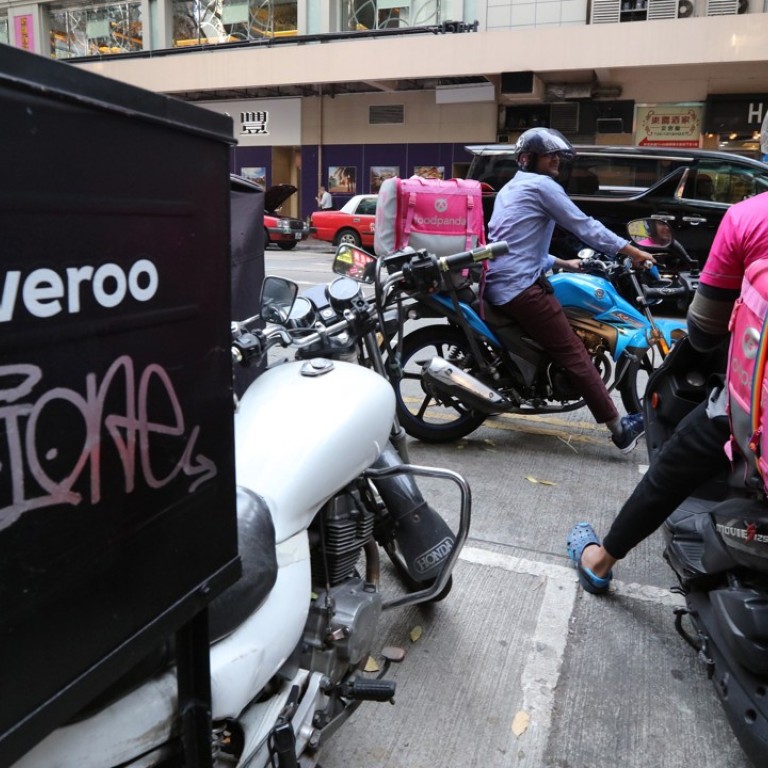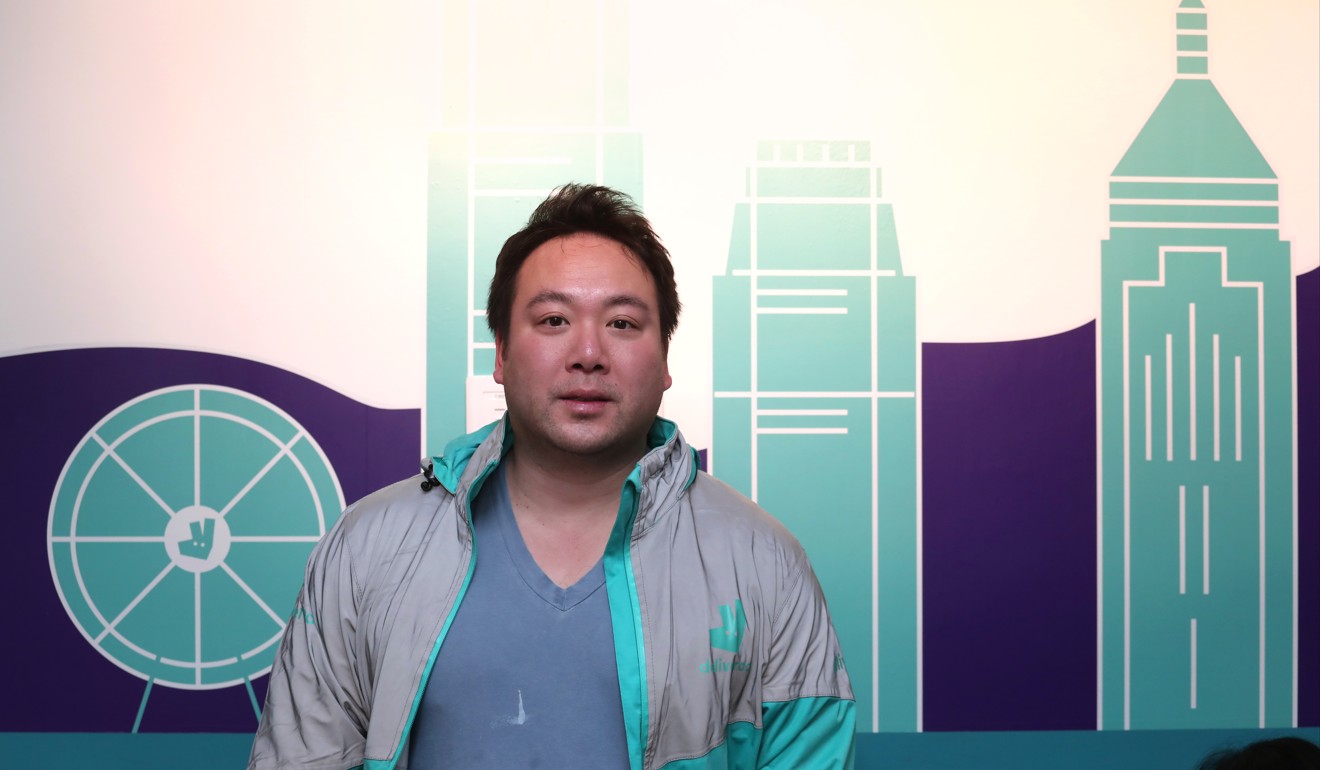
From investment banker to delivery man: how Deliveroo chief Will Shu built a US$2 billion company
Deliveroo's teal-coloured kangaroo logo is a familiar sight for many in Hong Kong, especially for hungry office workers who need a quick bite to eat while working late or for those at home who want a plate of food delivered before settling down to watch the next instalment of their favourite Netflix show.
All around Hong Kong, motorcycle riders equipped with a Deliveroo top box can be seen zipping in and out of traffic as they race to deliver piping hot meals to hungry customers. The company began life as a scrappy start-up in London but today it has a presence in over 200 cities across Europe, the Middle East and Asia – where it has operations in Hong Kong, Singapore and Taiwan.
Deliveroo was founded in 2013 by Taiwanese-American Will Shu and childhood friend Greg Orlowski. Shu, a 38 year-old former investment banking analyst at Morgan Stanley, came up with the idea to start Deliveroo when he was working overtime in London and saw that there were a lack of suitable food delivery options.
When Shu started Deliveroo, they managed to convince just three restaurants to be part of their service. For the first eight months he was also the firm's first delivery person, delivering food for five hours every day to better understand customer needs.
“My friends would order all the time just to see me deliver food because they thought it was super funny,” Shu recounted in an interview with UK site Startups in 2016. “They were bankers and they thought it was really comical but they kept ordering so that was cool.”
One ex-colleague became very concerned when Shu turned up at his house with pizzas in the affluent Knightsbridge district of London.
“He looks at me and he’s like ‘Will, what are you doing?’” Shu recalled. “I didn’t remember him too well so I was like ‘Excuse me?’ and he asked ‘Are you OK?’ and I was like ‘Yes, I’m just here to deliver your pizzas’.”

Deliveroo did not make Shu available for an interview with the Post.
Although Shu and Orlowski faced a lot of resistance and scepticism about the idea initially, their business in London eventually expanded through word of mouth. The company later branched out to other parts of Europe, including the cities of Paris, Berlin and Dublin in 2015 and subsequently to the Middle East and Asia.
The London-based company is a contender in the fast-growing, multibillion-dollar global food delivery business, going up against rivals such as Foodpanda, Uber Eats, Grubhub and Seamless as consumers shift towards on-demand services and the convenience of being able to order food via a few taps on their smartphones.
Broad delivery platforms have become big business in Asia recently due to a surge in popularity for on-demand services, including everything from food delivery to massages to luxury goods – ordered via ‘super apps’ at the tap of a finger on a smartphone. China food delivery service platform Meituan Dianping recently raised US$4.2 billion in Hong Kong’s second-biggest technology initial public offering this year.
Back in London, Shu still delivers once every two weeks despite being at the helm of one of Europe’s largest and most well-funded food delivery start-ups.
“You get to really understand what restaurateurs are thinking, what customers are thinking, what drivers are thinking,” Shu said in an interview with CNBC in April. “No one recognises me, so I’m always just talking to riders going ‘what do you think of this thing?’”
The British food delivery firm entered the Hong Kong market in November 2015, and is currently one of the main players in the city's food delivery scene, together with Foodpanda and Uber Eats. The company claims it delivers in an average of 32 minutes and has worked hard to add restaurants and eateries, both big and small, onto its platform.
The company has experimented with a number of initiatives aimed at increasing efficiency and providing better value to consumers. In Hong Kong, it launched Deliveroo Editions last September, operating its own delivery-only kitchen in Wan Chai, where restaurants are able to set up mini off-site kitchens to expand customer reach across the city.
Deliveroo now has 4,000 restaurants in Hong Kong on its platform and a fleet of 2,000 delivery people, with plans to cover the whole of Hong Kong by 2019, the company said.
In Singapore, Deliveroo this week launched a monthly subscription service called Deliveroo Plus, where customers pay S$10.90 (US$7.90) a month for unlimited free delivery of their orders. Such a subscription model is aimed at driving repeat orders from customers, since they are more inclined to order food using Deliveroo if they choose to subscribe to the program.
According to the company, Deliveroo Plus users who order at least five times a month would already begin to save money via the scheme.

